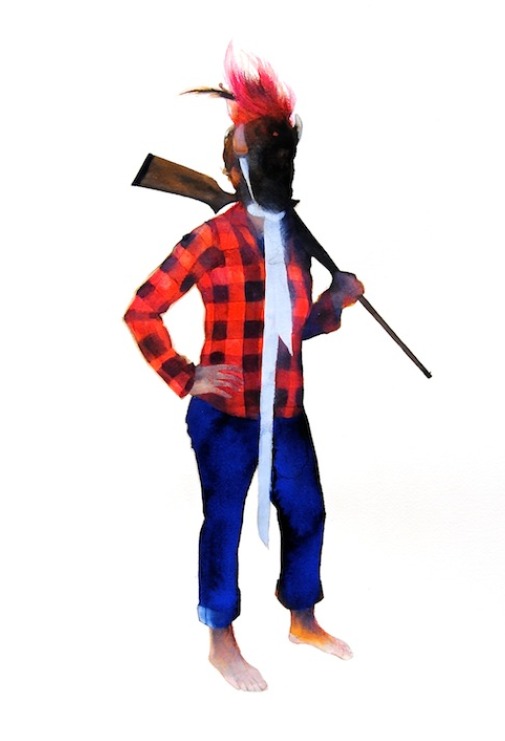- Vol. 01
- Chapter 03

Ritual
When June Black decided to mask her face and dress herself in the guise of an American huntsman, it is possible she had a presentiment of the resulting confusion, anger and grief that would later engulf the small Colorado town where she lived. Three days were enough for murmurs of speculation and a palpable sense of disquiet to descend on the public streets, and when the bodies, ‘scalped’ and rotting, each decorated with a few poorly-aimed bullet-wounds, were found bound together in a makeshift sweat-lodge deep in the forest, those worried whispers had by then turned into frenzied alarm. Six local men were known to have disappeared, all of whom had ventured out within the first two days, some of whom perhaps despite their wives’ anxious pleas. It is very likely that further lives were spared as the result of prevailing female instinct, possible that these fortunate men hugged their partners more tightly the night their dead neighbours were found. ‘The perverse nature of this altogether morbid ritual is difficult to comprehend’, began the town’s mayor, before offering platitudes to the dead men’s families and resigning to rhetoric in the face of such incomprehensibility.
Ritual
Of course, everyone understood that the sweat-lodge and scalping were native American rituals, and it was this very aspect of the crime that baffled people from agitated panic into a disturbed silence. They could understand the motives of terrorists, or troubled trigger-happy youth, even the arbitrary cruelties of nature. Of these realities they were indeed well-acquainted. That old enemy, the ‘Injun’, however, had only left the faintest traces in their collective conscience, and when they had rare occasion to examine this inheritance, found only guilt. The colourful bird feathers and barefooted imprints found outside the ritual site seemed surreal and anachronistic, and, in an earlier time, might have stirred hatred and fury in the same way as do newly chosen enemies today. The people's fury was now weakened by uncertainty and instead directed inwards, and it was to a general sense of relief, if surprise, that a forty-five year old, brown-haired white woman was later found guilty of the crime.
Ritual
June Black, known only as an environmental activist, had decided to leave an indelible message to a town where she was a solitary figure and did not seem to have any friends. It was rumoured that her house was soon to be repossessed and people speculated that June had been in a state of desperation. She had never been happy as a child, anyway, said old school mates, she just never fit in, and slowly a picture of just another violent, misanthropic outcast seemed to reveal itself in the public mind. A black bison face-mask, crowned with bird’s feathers, was found at her home below her cold, suspended body and muddy feet. She had hung herself with a white silk tie which, it was later suggested by the town’s more thoughtful members, represented her mortgage. There was no suicide note.
